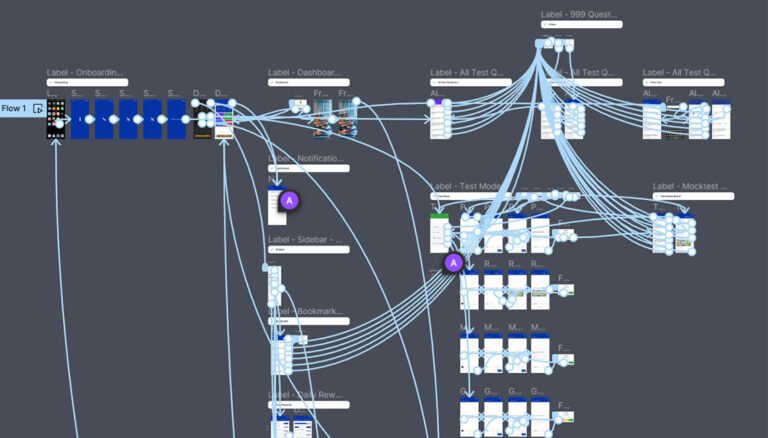(Web) Crawling vs Scraping
Short version:
web scraping = extracting the data from one or more websites
web crawling = about finding/discovering URLs or links on the web, usually in web data extraction projects i.e.: Google’s spider crawler bots
→ 99% of the time people are scraping data. So you’re going to be webs scraping.
What is Web Crawling?
Web crawling, at its core, is an automated process used to browse the World Wide Web systematically. It’s like sending out a team of robot explorers, each tasked to navigate the internet, and cataloging every page they find. This process is the bedrock of search engines, which rely on web crawlers (sometimes referred to as spiders or bots) to build an index of the web.
How Web Crawlers Work
These digital explorers operate by following links from one web page to another. Using algorithms, they decide which pages to visit, how often, and how long to stay. The technology stack behind web crawling includes languages like Python and frameworks like Scrapy, with a focus on efficiency and speed.
Use Cases
The main use of web crawling is in powering search engines, helping them provide relevant, up-to-date search results. It’s also crucial in SEO, where understanding how a crawler navigates your site can lead to better page rankings. Beyond search engines, web crawling is used for data aggregation, monitoring website changes, and even in academic research for indexing scholarly articles.
What is Web Scraping?
Web scraping, is similar to crawling in its digital nature, but differs in purpose and execution. If web crawling was a large commercial fishing net, web scraping, on the other hand, is like a deep sea fishing pole; focusing on a specific website(s). This process involves extracting specific data from websites(also referred to as parsing) and is often used for analysis, market research, or collecting information from multiple sources. Unlike web crawling, which maps the web at a large-scale(spray & pray), web scraping targets specific data sets(sniper rifle).
How Web Scraping Tools Extract Data
Web scraping is performed using tools that mimic human web browsing, but do so at a much larger scale and speed. Another way to think of it as a type of macro (or script) bot that automates the process of getting specific data from a website(s). These tools can parse HTML, interact with APIs, and even render JavaScript to extract data from dynamically generated content. That means some advanced scraping tools can even bypass the human tests(such as CAPTCHA) that websites sometimes use to serve as a gatekeeper for tools like these. Languages like Python, with libraries like Beautiful Soup and Selenium, are among the most commonly used.
Use Cases
From market research to lead generation, web scraping can be a powerful tool in extracting specifically targeted information. It has many use cases such as monitoring competitor pricing, aggregating real estate listings, and even in journalism for gathering data from public records.
Imagine a researcher manually going through a room full of cabinets that are full of folders. Computers helped us get rid of filing cabinets. Scrapers help you find the right folder in other cabinets.
Here’s a list of potentially profitable ideas:
- E-commerce Price Comparison: Create a service that scrapes various e-commerce websites to compare prices of products. This service can help customers find the best deals and can be monetized through affiliate marketing, ads, or subscription fees.
- Real Estate Market Analysis: Scrape real estate listings to aggregate data on property prices, trends, and availability. This information can be invaluable to investors, realtors, or potential homebuyers. You can sell access to this data or use it to inform your own real estate investments.
- Travel Fare Aggregation: Develop a platform that scrapes airline and hotel prices, providing users with the cheapest travel options. Revenue can be generated through partnerships with travel agencies or airlines, or via a commission on every booking made through the platform.
- Competitive Analysis for Retailers: Offer a service that scrapes data from competitor retail websites for price, stock levels, and product variety. This service can be sold to retailers looking to stay competitive in their pricing and inventory management.
- Stock Market Analysis: Scrape financial websites and forums to gather data on stock market trends and sentiments. This information can be valuable for traders and can be packaged into a subscription-based newsletter or analysis service.
- Lead Generation Services: Scrape online directories and social media platforms to compile lists of potential leads for businesses. These leads, categorized by industry, interest, or demographic, can be sold to marketing agencies or direct to businesses.
- Job Market Analysis: Create a platform that aggregates job listings from various websites. This tool can be useful for jobseekers, recruiters, and companies looking to understand the current job market, salary ranges, and skill demand.
- Event Ticket Price Monitoring: Develop a tool that tracks and compares ticket prices for various events like concerts, sports, and theater from multiple ticket-selling platforms. This service can help users find the best deals and can generate revenue through affiliate links or ads.
- Monitoring Brand Reputation: Offer a service that scrapes social media and review sites for mentions of a company or brand. This service can be invaluable for public relations firms or individual companies looking to manage their online reputation.
- Automated News Aggregation: Scrape various news websites and aggregate content into specific niches or topics. This aggregated content can be used to create a niche news portal, which can attract a specific audience segment and be monetized through ads or subscriptions.
/ It seems anything with a price difference could have a potential business opportunity. A list of such price arbitrage opportunities and calculating the profit margins could be a good place to start.
Web Crawling vs Web Scraping
While web crawling and scraping both deal with online data, their scope and methods differ. Web crawling is about mapping the web at large, cataloging anything and everything it comes across and taking note of the quality of the data crawled.
Web scraping is more focused and targeted, extracting specific data for immediate use.
They work hand in hand except for most scraping projects, humans do the crawling by hand.







